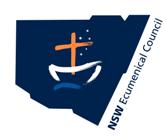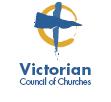
Mandate
The National Aboriginal and Torres Strait Islander Ecumenical Commission shall:
- Provide a forum for Aboriginal and Torres Strait Islander peoples to speak and take action on issues of faith, mission and evangelism; of Aboriginal and Torres Strait Islander spirituality and theology; of social justice and land rights.
- Serve as a unified voice for Aboriginal and Torres Strait Islander peoples as they relate to member churches and international ecumenical bodies.
- Help rebuild self-esteem, pride and dignity within Aboriginal and Torres Strait Islander communities.
- Promote harmony, justice and understanding between Aboriginal and Torres Strait Islander peoples and the wider community.
- Provide a basis for further political action by church-related Aboriginal and Torres Strait Islander groups, other Aboriginal and Torres Strait Islander organisations and the member churches of the National Council of Churches in Australia.
- Administer all funds of the National Council of Churches in Australia relating to Aboriginal and Torres Strait Islander peoples.
- Share in furthering the objectives and promoting the programmes of the National Council of Churches in Australia.
Memorandum of Understanding - see next page.
Memorandum of Understanding
In 2005, the NCCA and NATSIEC signed a memorandum of Understanding (MOU). The intent of the MOU was to have in place an agreed procedure for the NCCA to act respectfully, appropriately, and in solidarity, with Aboriginal & Torres Strait Islander peoples, through NATSIEC. Since the original MOU was signed the United Nations Declaration on the Rights of Indigenous Peoples (DRIP) has been endorsed, with the Australian Government confirming its support in 2007. At the NCCA Forum held in June 2010 the MOU was amended to recognize this development. Excerpt from the MOU follows.
Preamble
1. The National Council of Churches in Australia (NCCA) and its member Churches are aware of the importance of the First Peoples of this land: the Aboriginal & Torres Strait Islander peoples who have been custodians been of this country for many thousands of years.
2. The NCCA notes the United Nations Declaration on the Rights of Indigenous Peoples and affirms particularly its principles of equality, nondiscrimination, consultation and cooperation when pursuing harmonious and respectful relationships with the First Peoples of this land.
3. The NCCA and the National Aboriginal & Torres Strait Islander Ecumenical Commission (NATSIEC) acknowledge the importance of mutual respect and understanding by modeling reconciliation to its member Churches and to the wider Australian community; and the benefits of a close and informed relationship.
4. The NCCA is committed to furthering reconciliation and ensuring that the First Peoples of this nation are shown respect and are valued for their contribution to Australian church life.
5. The National Aboriginal & Torres Strait Islander Ecumenical Commission is mandated to:
“Provide a basis for further political action by church-related Aboriginal and Torres Strait Islander groups, other Aboriginal and Torres Strait Islander organisations and the member churches of the National Council of Churches in Australia.”
6. The National Council of Churches in Australia is mandated to:
“Encourage and enable the member churches in the light of the Gospel to give prophetic leadership to each other and the community by iv] acting in solidarity with Aboriginal and [Torres Strait] Islander people.”
The objective of the MOU is to:
1. Put on record the key requirements of the consultation process for the NationalCouncil of Churches when making comment on Indigenous issues to the member Churches, the wider non-Indigenous community, and the Indigenous community.
2. Ensure that members of NATSIEC and through them, Indigenous communities around Australia, are consulted before statements are made to them and on their behalf by the National Council of Churches in Australia.
The following principles underpin the implementation of this MOU:
1. the NCCA is expected to consult with the NATSIEC in all matters relating to Aboriginal & Torres Strait Islander peoples of Australia as a matter of respect;
2. as the Indigenous Ecumenical peak body in Australia, the NATSIEC has an important role to play in addressing the NCCA’s involvement in Indigenous issues;
3. particular Member Churches have Indigenous members and/or Indigenous Church bodies with whom they can consult about matters relating to them and NATSIEC encourages Member Churches to use those resources when involving themselves in Indigenous Issues.
Australian Ecumenical Partnerships
 |
NSW Ecumenical Council |
 |
Council of Churches of Western Australia Inc. 4A Centro Ave Subiaco WA 6008 Ph: (08) 6186 6039 Office: This email address is being protected from spambots. You need JavaScript enabled to view it. Email: This email address is being protected from spambots. You need JavaScript enabled to view it. |
 |
Queensland Churches Together Postal: PO Box 2096 Toowong QLD 4066 Ph: (07) 3369 6792 Fax: (07) 3369 8573 Email: This email address is being protected from spambots. You need JavaScript enabled to view it. |
 |
Victorian Council of Churches Postal: PO Box 211 Flinders Lane, Melbourne VIC 8009 Phone: 0499 726 213 Email: This email address is being protected from spambots. You need JavaScript enabled to view it. |
 |
Northern Territory Council of Churches Postal: c/- Anglican Diocese of the Northern Territory GPO 2950 Darwin NT 0801 Ph: (08) 8941 7440 Email: This email address is being protected from spambots. You need JavaScript enabled to view it. |
 |
Tasmanian Council of Churches Email: This email address is being protected from spambots. You need JavaScript enabled to view it. |
Ecumenical Funds
The National Council of Churches in Australia administers the following ecumenical funds:
How We Work
The National Council of Churches in Australia (NCCA) is an ecumenical council of member Australian Christian Churches.
pdf NCCA Constitution Amended 30 October 2019 (968 KB)
pdf Australian Churches Covenanting Together 2016v. (70 KB)
The NCCA gathers together Churches and Christian communities which confess the Lord Jesus Christ as God and Saviour according to the Scriptures. We commit to deepen our relationship with each other and to work together towards the fulfilment of common witness, proclamation and service, to the glory of the one God, Father, Son and Holy Spirit. Read the NCCA story.
State and National Co-operation
The National Council of Churches in Australia is a national organisation that works in partnership with state ecumenical councils around Australia.
Forum and Board
While the National Forum of the Council meets every three years, ongoing oversight of the Council is provided by the Board, which is made up of nominated Directors from national churches.
The National Council of Churches is supported by the General Secretariat, headed by the General Secretary.
Departments
The NCCA works through a number of Commissions, Networks, Taskforces and Programs. These constitute the 'departments' of the NCCA and order its workplan.
Act for Peace (previously known as Christian World Service)
Act for Peace is the international aid agency of the NCCA. Its focus is on assisting the most conflict and disaster-affected communities to be safe. Act for Peace supports ecumenical partners to do this in, and with communities displaced from, countries such as Syria, Iraq, Palestine, South Sudan, Ethiopia, Zimbabwe, Myanmar and Sri Lanka. Act for Peace manage the:
- annual Christmas Bowl, which has been generously supported by Australian churches since 1948.
- annual Ration Challenge, which raises money for emergency food, healthcare and life-saving support for refugees by eating the same rations for one week.
- Ecumenical Accompaniment Programme in Palestine and Israel (EAPPI) is a program of the World Council of Churches (WCC). The EAPPI seeks to support local and international efforts to end the Israeli occupation and bring a resolution to the Israeli-Palestinian conflict with a just peace, based on international law and relevant United Nations resolutions.
Faith and Unity
The NCCA's Faith and Unity Commission brings together theologians from the member churches who act in a voluntary capacity. The Commission engages with the theological work of the wider Church, both to learn and to contribute.
Safe Church Program
For over a decade, the Safe Church Program has helped churches and Christian ministries to create safer environments for children and vulnerable adults. It has its own membership base that includes both NCCA member and non-member churches, and it works across all denominations to support churches in their safeguarding journey.
Australian Churches Refugee Taskforce
A Christian vision of compassion and hospitality for asylum seekers and refugees.
First Nations
NCCA is committed to the churches working together for justice for Aboriginal and Torres Strait Islander Australians, and for the healing of our peoples. We believe that Aboriginal and Torres Strait Islander Peoples, nurtured and sustained by God before colonisation, are celebrated at the very heart of what is means to be Australian.
Aboriginal and Torres Strait Islander Development Fund
The Aboriginal & Torres Strait Islander Development Fund (ATSIDF), of the National Council of Churches in Australia, is a tax deductible fund set up to assist Aboriginal & Torres Strait Islander Peoples by giving small, usually one-off grants for community development projects. The projects are funded through the Martung Upah Appeal.
Justice, Peace and Care for Creation
The NCCA brings together Church networks with a shared common interest in justice issues related to Family Violence, Modern Slavery and Care for Creation.
Interfaith Dialogue
The NCCA is a founding partner in the Australian National Dialogue of Christians, Muslims and Jews (ANDCMJ). The Dialogue was officially 'launched' in March 2003 after 12 months of formal preparation, which was preceded by informal contact and discussions between the NCCA, AFIC (Australian Federation of Islamic Councils) and ECAJ (Executive Council of Australian Jewry).
The NCCA is a member of the Australian Partnership of Religious Organisations (APRO) from its beginnings in 2003.
Funds
The NCCA oversees two funds that are available for ecumenical work:
Member Churches
NCCA Story
Churches Working Together
 “The National Council of Churches in Australia gathers together in pilgrimage those Churches and Christian communities which confess the Lord Jesus Christ as God and Saviour according to the Scriptures and commit themselves to deepen their relationship with each other in order to express more visibly the unity willed by Christ for his Church, and to work together towards the fulfilment of their mission of common witness, proclamation and service, to the glory of the one God, Father, Son and Holy Spirit.”
“The National Council of Churches in Australia gathers together in pilgrimage those Churches and Christian communities which confess the Lord Jesus Christ as God and Saviour according to the Scriptures and commit themselves to deepen their relationship with each other in order to express more visibly the unity willed by Christ for his Church, and to work together towards the fulfilment of their mission of common witness, proclamation and service, to the glory of the one God, Father, Son and Holy Spirit.”
The National Council of Churches in Australia is an ecumenical council of member Australian Christian Churches.
The Ecumenical Movement in Australia
What is Ecumenism?
pdf Statement on Ecumenism (108 KB) (8 April 2021)
A brief history of the NCCA
The modern ecumenical movement began to take shape as the 19th century drew to a close. Initiatives among students and between Church mission agencies led the way. This country saw the formation of the Australian Student Christian Movement (1896) and the National Missionary Council (1926).
Out of the devastation of World War II sprang the Australian Committee for the World Council of Churches (1946). This developed into the Australian Council of Churches which, in 1994, gave way to the National Council of Churches in Australia.
The movement for Christian unity in this country was, initially, an Anglican and Protestant affair. Eastern and Oriental Orthodox Churches came in, in strength, during the 1960s and 70s. For Catholics, the 2nd Vatican Council opened up fresh possibilities for relationships with other Churches, and the transition to the National Council of Churches in Australia (1994) saw the Catholic Church become a full participant in Australia's national ecumenical body.
The NCCA is its eighteen member Churches in their commitment each to the others and all to the world for which Christ died. It works in collaboration with state ecumenical councils around Australia. It is an associate council of the World Council of Churches, a member of the Christian Conference of Asia and a partner of Pacific Conference of Churches and other national ecumenical bodies throughout the world.
 |
 |
 |
||||
WORLD COUNCIL OF CHURCHES |
AUSTRALIAN PARTNER COUNCILS |
CHRISTIAN CONFERENCE OF ASIA |
PACIFIC CONFERENCE OF CHURCHES |











